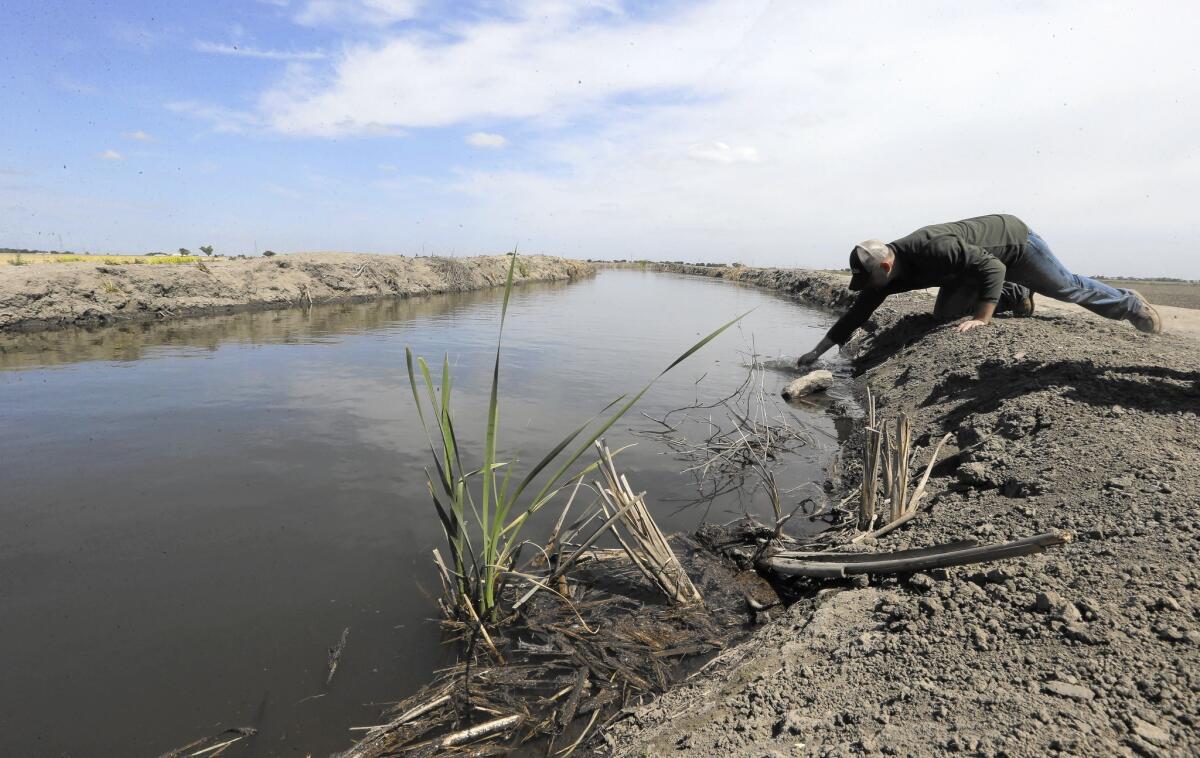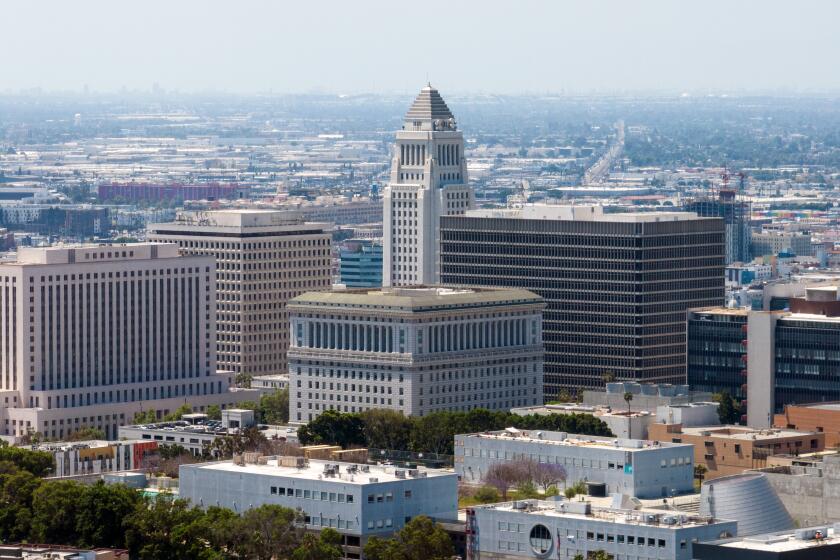Capitol Journal: Brown gets touchy over criticism of water tunnel plan

Reporting from SACRAMENTO — Gov. Jerry Brown has been getting quite cranky lately when anyone belittles a pet project, especially his proposed water tunnels.
And if he’s crotchety now, wait until next year’s election, when he’ll probably be forced to defend his pricey tunnels and pokey bullet train.
That’s because there’ll be a citizens’ initiative on the ballot that could bury the tunnels and sidetrack the train. The measure would require voter approval of any project with a price tag exceeding $2 billion if it’s to be financed by state revenue bonds. The tunnels probably would be; the train, perhaps.
Last week after tunnel opponents protested on the state Capitol steps — claiming the $15.5-billion project was financially risky and a water grab by San Joaquin Valley corporate farmers and Southern California developers — Brown issued a brief prepared statement unique in its formal acerbity.
The governor began civilly enough: “The delta pipeline is essential to … protecting fish and water quality. Without this fix, San Joaquin farms, Silicon Valley and other vital centers of the California economy will suffer devastating losses in their water supply.”
Opponents strongly disagree, contending that delta fish and water quality would suffer and that there are other, cheaper solutions for the state. But Brown’s opening remark was not offensive. This concluding slap, however, was:
“Claims to the contrary are false, shameful and do a profound disservice to California’s future.”
Very un-gubernatorial. Since when is it shameful and a disservice to democracy to express an opposing viewpoint at the state Capitol?
You might recall that in a speech last spring to local water officials the governor told tunnel opponents to “shut up” unless they’d studied the project — as his administration had — for 1 million hours. “Because you don’t know what the hell you’re talking about.”
That million hours, for one opponent, would consume 480 years of normal work weeks.
The water managers laughed, and a Brown spokesman later said the governor was just kidding. But the body language didn’t show that. It portrayed a guy who thinks he’s the smartest one around — maybe because he has been around longer than just about anyone else in the room. But Brown has always been that way, even decades ago when he was the new kid.
In July, you might also remember, Brown spoke at a climate-change conference in Canada and called U.S. politicians who refuse to act against global warming “troglodytes,” or cave dwellers.
But back to the Sacramento-San Joaquin River Delta, California’s main water hub. Brown has been trying to build two humongous 40-foot-wide, 35-mile tunnels under the West Coast’s largest estuary. They would siphon fresh water from the Sacramento River before it flows into the delta and pour it into southbound aqueducts.
Brown says this is needed to protect California’s water supply against collapsing levees during a big earthquake, against federal judges who periodically turn off fish-chomping pumps in the current plumbing system and against a rising salty sea in future global warming.
Opponents point out there has never been such a delta earthquake in recorded history. And they argue there are cheaper alternatives that wouldn’t destroy delta farming and salmon reliant on fresh water. They include strengthening delta levees and installing better fish screens on pumps. Plus finally building reservoirs and focusing on local projects: groundwater cleanup, storm water capture, recycling and desalination.
One man who feels strongly about this is wealthy food processor Dean Cortopassi, 78, who has lived his entire life in the delta and loves it. He has spent $4 million of his own money to qualify what he calls the “no blank checks” initiative for the 2016 ballot.
It’s not a referendum on the tunnels, exactly, but could collapse them.
A little civics refresher here: There are two basic types of state bonds. The most common is a general obligation bond, which is paid off through the state general fund with tax money. These bonds must be approved by voters. They’re not involved in the initiative.
The second type is a revenue bond. It is financed with revenue from a project: vehicle tolls or water rates. Voters don’t get a say on these projects because they’re paid for by user fees.
Cortopassi’s proposal would require any revenue bond project exceeding $2 billion to win voter approval. About the only current projects that would be affected are the twin tunnels and possibly the $68-billion bullet train. Voters already have approved $9 billion in general obligation bonds for high-speed rail, but that’s far short of what would be needed to complete the line.
Brown, labor unions and business interests are adamantly opposed to the measure. They contend it would torpedo many infrastructure projects. There could be some, such as dams partly paid for by water users.
Requiring voter approval of huge user-funded projects might be a bad idea. That will require more thought. But the tunnel project was purposely set up to avoid the electorate. Politicians and their appointees are making all the decisions.
And as Cortopassi pointed out to me, delta plumbing provides water for about two-thirds of California’s population.
“I find it a specious argument that users are not taxpayers and taxpayers are not users,” he says. “When do they ever get a chance to say aye or nay? We shouldn’t be leaving that kind of willy-nilly spending up to government agencies.”
You’ll no doubt be hearing more about that from the grumpy governor.
Twitter: @LATimesSkelton
More to Read
Sign up for Essential California
The most important California stories and recommendations in your inbox every morning.
You may occasionally receive promotional content from the Los Angeles Times.











